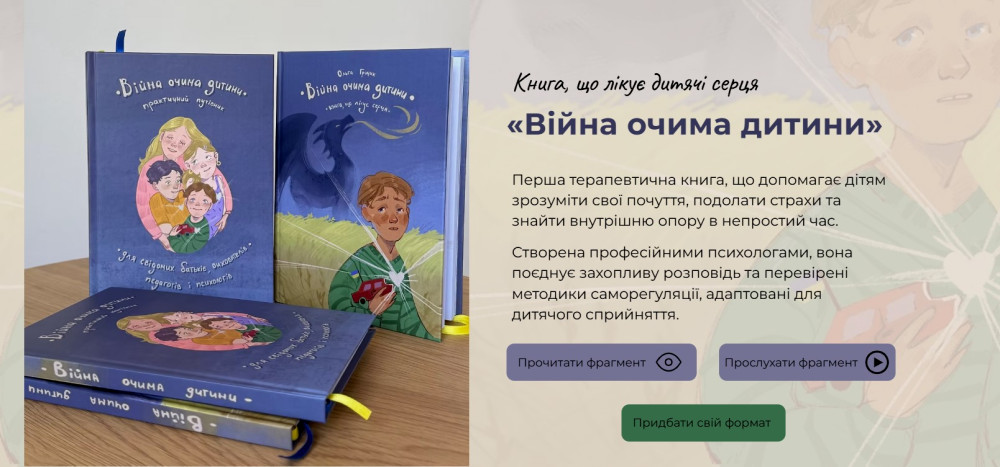A new therapeutic book for children who have faced the consequences of war has been released in Odessa. Titled «War Through a Child's Eyes», this publication is not just a story but a profound tool for psychological support, based on real events and experiences of Ukrainian families affected by the conflict.
This book has become an important voice for children living in the shadow of war. «War Through a Child's Eyes» is more than a mere narrative. It is a heartfelt conversation that is difficult to start but essential to have. It is a therapeutic journey through fear, pain, and hope. Written by Oksana Grytsyk, a psychologist and mother of three, this book was born from real pain, maternal anxiety, and a desire to heal.
The story revolves around a boy named Vladik, the youngest of three children in a family forced to leave their home due to war. However, it is truly the story of hundreds of Ukrainian families. Within it is the voice of every child who one day asked, «Where is our home now?»
This is not fiction — it is lived experience.
This is not just a plot — it is a journey.
This is not merely words — it is support woven into every page. «War Through a Child's Eyes» is a book that heals. A story in which every child can recognize themselves, – shared the author.
The book contains 35 chapters, each gently integrating therapeutic techniques: art therapy, NLP, metaphorical imagery, visualizations, and breathing exercises. These techniques are presented so naturally that as a child reads, they heal without noticing how their fears dissolve in the words.
Psychologist Tatyana Zbirshchak, a specialist in trauma therapy, contributed to the creation of the book. She helped to provide the text with therapeutic depth and internal strength. Her voice narrates the audiobook so that mothers can listen alongside their children, touching on important and often unspoken issues.
Do not scold children for «not listening». They are in pain. They hold anxiety inside. Reading or listening to this book helps stabilize the child. Their behavior, attention, and learning begin to improve, — explains Tatyana.
